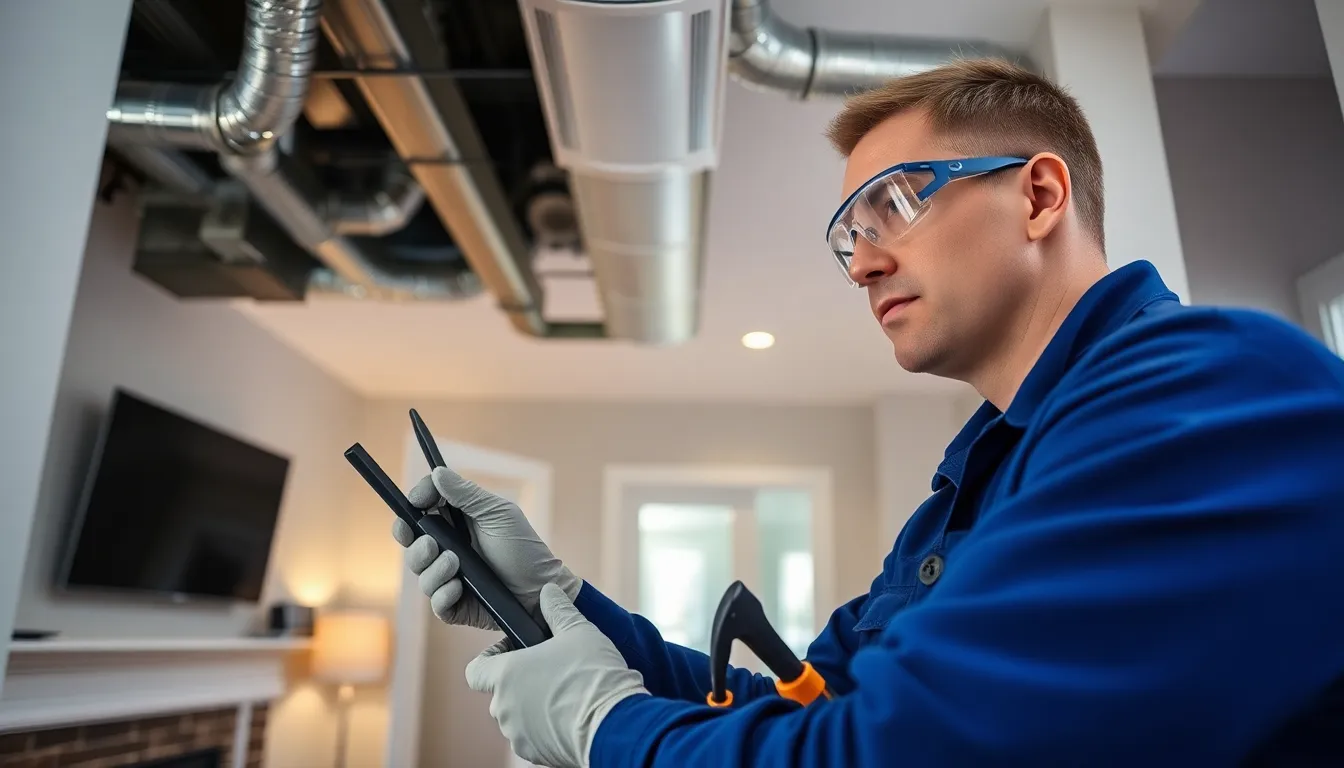Every year, like clockwork, the time comes to tackle yearly maintenance. It’s that magical moment when homeowners put on their superhero capes and dive into a world of cleaning, fixing, and sprucing up. Sure, it might not sound as thrilling as a blockbuster movie, but trust me—neglecting it can lead to a sequel no one wants to watch.
Table of Contents
ToggleImportance Of Yearly Maintenance
Yearly maintenance plays a critical role in preserving property value. Proactive attention to a home can prevent costly repairs in the long run. Schedule regular inspections to catch issues early and address potential problems effectively.
Preventative upkeep enhances safety for all occupants. Wells, roofs, and electrical systems require assessment to mitigate hazards. Inspecting smoke detectors and carbon monoxide detectors ensures they work correctly, safeguarding against emergencies.
Furthermore, annual maintenance boosts energy efficiency. Services like furnace cleaning and air conditioning checks can reduce utility bills. Calculate savings over time; it often pays for itself through energy conservation.
Neglecting maintenance leads to significant consequences. Property can deteriorate rapidly without regular care, resulting in lower market value. Issues like mold growth and structural damage can arise, necessitating expensive remediation.
Homeowner benefits from comprehensive documentation of maintenance activities. Keeping a log of services performed creates a clear record for future reference. This practice also simplifies communication with service providers when seeking repairs or replacements.
Lastly, yearly maintenance fosters a sense of pride in homeownership. A well-maintained residence reflects attention and care. Regularly investing time and resources into upkeep provides peace of mind and enhances living conditions.
Key Components Of Yearly Maintenance

Yearly maintenance involves specific tasks crucial for preserving the home’s safety and efficiency. Key areas requiring attention include HVAC systems, plumbing, and electrical components.
HVAC System Checks
Regular HVAC system checks maintain optimal performance. Technicians should inspect filters and replace them every three months. They should also assess thermostat settings and verify proper airflow throughout the home. Maintaining cleanliness of ducts contributes to energy efficiency, which can lower utility bills. Homeowners benefit from scheduling professional inspections annually to prevent unexpected breakdowns and costly repairs.
Plumbing Inspections
Plumbing inspections are vital for identifying leaks or clogs. Homeowners must check visible pipes for signs of corrosion or dampness. Inspecting water heaters annually ensures they operate efficiently, extending their lifespan. Additionally, flushing the water heater removes sediment buildup, improving performance. Routine checks of toilets and fixtures help prevent water waste and reduce water bills significantly.
Electrical System Maintenance
Electrical system maintenance is essential for safety. Homeowners must examine smoke detectors monthly, replacing batteries as needed. Inspecting outlets and switches for signs of damage enhances electrical safety. It’s important to check circuit breakers, ensuring they function properly and are not overloaded. Engaging a licensed electrician for annual safety assessments mitigates fire risks and ensures compliance with local codes.
Benefits Of Regular Yearly Maintenance
Regular yearly maintenance offers numerous advantages for homeowners. These benefits directly impact cost efficiency and safety.
Cost Savings
Proactive maintenance helps avoid costly repairs down the line. For example, identifying minor issues early can prevent extensive damages, saving thousands of dollars. Routine inspections often reveal inefficiencies in HVAC systems, which can be fixed to improve energy consumption. Enhancing energy efficiency leads to reduced utility bills, ensuring financial relief over time. Additionally, maintaining plumbing systems prevents leaks that can increase water bills dramatically. It’s clear that keeping a consistent maintenance schedule directly correlates with long-term monetary savings.
Improved Safety
Safety remains a top priority in every home. Regular inspections of electrical systems significantly reduce the risk of fires caused by faulty wiring or malfunctioning devices. Homeowners identify potential hazards before they escalate into emergencies through preventative measures. Routine checks of smoke detectors ensure they function properly, providing peace of mind. Furthermore, examining plumbing systems can reveal leaks that lead to water damage and mold growth, both of which pose health risks. Improved safety measures contribute to a secure living environment for all occupants, fostering confidence in home conditions.
Common Challenges In Yearly Maintenance
Yearly maintenance presents several challenges that homeowners often face. Two primary obstacles include budget constraints and scheduling conflicts, both of which require careful consideration.
Budget Constraints
Budget constraints arise as homeowners prioritize expenses. Necessary repairs can strain financial resources, especially if unexpected issues surface during inspections. Planning a yearly maintenance budget helps allocate funds for essential upkeep and avoid significant costs later. Setting aside a specific portion of the annual budget for maintenance prevents financial surprises and ensures property upkeep. For instance, if homeowners budget $500 for annual maintenance, they reduce the risk of encountering large, costly repairs.
Scheduling Conflicts
Scheduling conflicts frequently hinder timely maintenance. Balancing work commitments, family obligations, and other priorities complicates the execution of yearly maintenance tasks. Homeowners can mitigate these conflicts by planning maintenance activities well in advance. Establishing a maintenance calendar enables homeowners to allocate specific dates for inspections and repairs. If they aim for a dedicated weekend each spring, they simplify scheduling and ensure proper maintenance. Engaging professionals for inspections may also accommodate tight schedules and relieve strain.
Yearly maintenance is more than just a chore; it’s a vital investment in a home’s longevity and safety. By committing to regular inspections and upkeep, homeowners can prevent minor issues from escalating into costly repairs. This proactive approach not only enhances property value but also fosters a sense of pride in homeownership.
Establishing a maintenance schedule and keeping detailed records can streamline the process and ensure that no critical tasks are overlooked. With careful planning and professional assistance when needed, homeowners can navigate the challenges of maintenance while enjoying the peace of mind that comes from a well-cared-for home.



